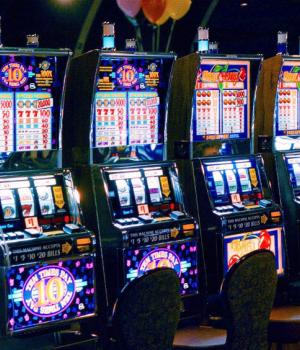Slot machines have long been a staple in the world of gambling, captivating players with their colorful displays, flashing lights, and enticing sounds. The allure of these machines goes beyond mere entertainment, delving deep into the realm of psychology. To comprehend why slot machines have such a powerful hold on people, it is essential to explore the intricate psychological mechanisms that underlie their design and operation. Slot machines are designed to exploit the principles of operant conditioning, a fundamental concept in psychology. When a player pulls the lever or presses the button, they are engaging in a behavior with uncertain outcomes. This unpredictability creates a sense of anticipation, akin to a gambler’s high, as players hope for a rewarding outcome. Slot machines intermittently provide wins, which keeps players engaged and eager for the next spin. This type of variable reinforcement schedule is highly effective in promoting repetitive behavior and fostering addiction.
One of the most compelling features of slot gacor terbaik machines is the near-miss effect. This occurs when the symbols on the reels come tantalizingly close to forming a winning combination but fall just short. Even though the player technically lost, this near-miss creates a false sense of almost winning, which intensifies the desire to continue playing. The brain interprets these near-miss outcomes as signals that a win is within reach, making players more determined to try again. Slot machines are a sensory overload experience. The bright colors, flashing lights, and melodic jingles create a multisensory environment that keeps players immersed in the game. This sensory bombardment triggers the release of dopamine in the brain, a neurotransmitter associated with pleasure and reward. The more engaged and stimulated a player is, the more they are likely to play for extended periods, chasing that elusive jackpot.
Slot machines are simple to operate, with no skill required to play. However, the illusion of skill is often present. Players may believe that they can influence the outcome by timing their spins or choosing when to cash out. This misconception fuels a sense of control, making the game more appealing. In reality, the outcomes are determined by a random number generator, leaving no room for skill to play a role. Human cognition is rife with biases that can lead to irrational decision-making. The availability heuristic, for example, makes players overestimate the frequency of wins because big wins are more memorable, despite being rare. This cognitive bias leads players to believe they are more likely to win than they actually are, keeping them engaged in the game. The psychology of slot machines is a complex interplay of reinforcement, anticipation, sensory stimulation, and cognitive biases. These machines are meticulously designed to keep players engaged, even when the odds are stacked against them. The allure of slot machines is deeply rooted in the human psyche, and understanding these psychological mechanisms can help individuals make informed decisions about their gambling habits. While these games can be entertaining, they also pose a risk of addiction, making it crucial to approach them with caution and moderation.

